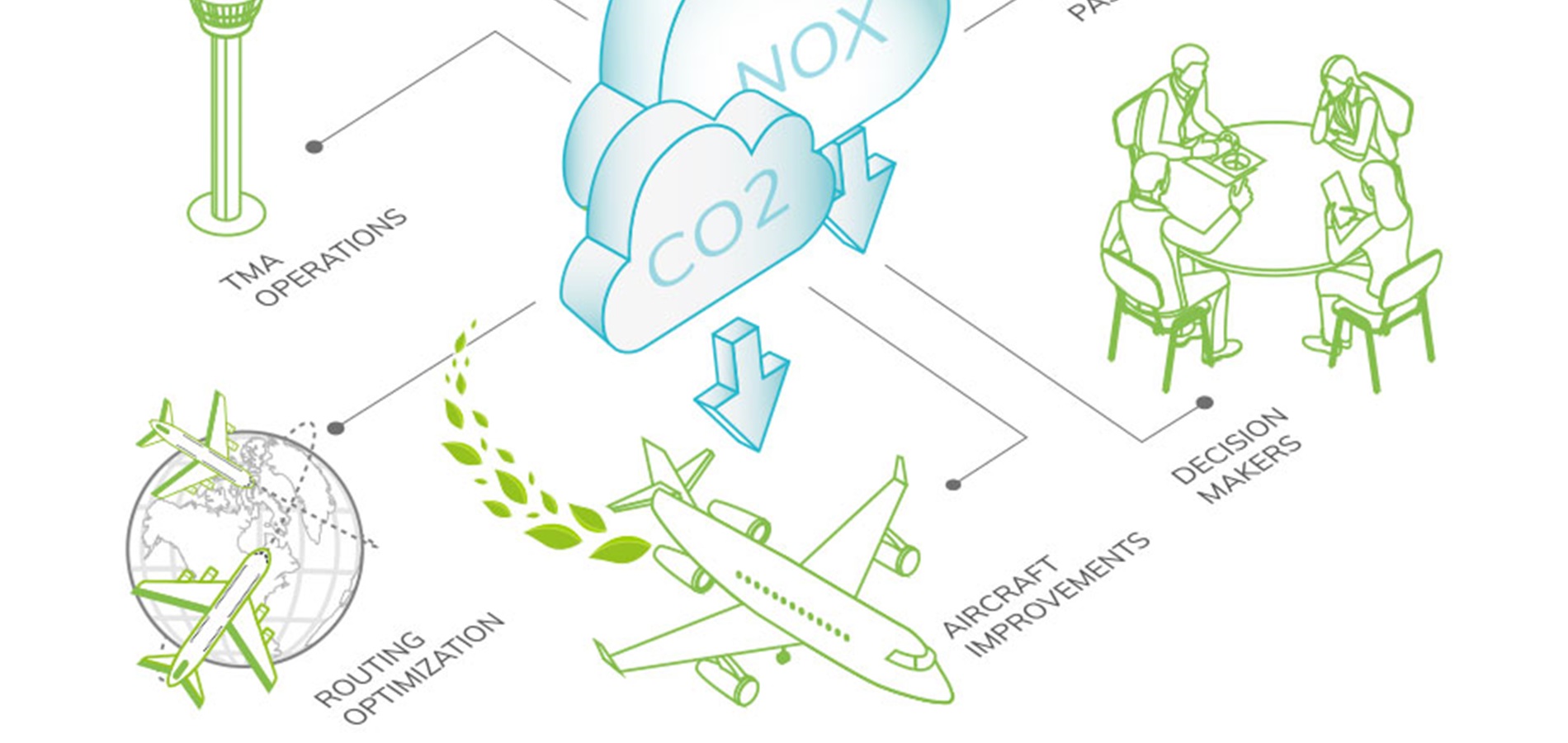
Respect for the environment is one of the priorities of the aviation industry whose expected growth in the coming years requires special attention to climate change, which led with this project to the sharing of sound recommendations.
THE PROJECT
Air Transport has for a long time been linked to environmental issues like pollution, noise and climate change. Aviation emissions, such as carbon dioxide (CO2), water vapour (H2O), nitrogen oxides (NOx), soot and sulphate aerosols, alter the concentration of atmospheric Greenhouse gases and trigger the formation of contrails and cirrus clouds. The share of aviation amongst all anthropogenic CO2 emissions is about 2% (Air Transport Action Group, ATAG). However, studies estimate the climate impact from aviation for the year 2005 including non-CO2 emissions to roughly 5% of the total anthropogenic radiative forcing (Lee et al., 2010). Considering the projected growth of air traffic for the next decades of 5% (in terms of Revenue Passenger Kilometres) per year, aviation’s share of the total anthropogenic climate impact is expected to increase further. Consequently, intergovernmental organizations, aircraft manufacturers and operators and the research community are increasingly focusing on different technological, operational and regulatory climate impact mitigation options.
In this framework, ClimOP aimed to identify, evaluate and support the implementation of mitigation strategies to initiate and foster operational improvements which reduce the climate impact of the aviation sector. Operational improvements correspond to any operational measure or action taken through time in order to improve the current provision of aviation operations. The overall objective of ClimOp is to define actions and advice for policymakers by proposing a set of most promising and harmonized mitigation strategies showing a favourable balance between climate and stakeholder impacts.
FOCUS
Goals
- To determine a set of most promising and innovative operational improvements to reduce climate impact;
- To quantify the climate impact of the operational improvements selected;
- To evaluate the stakeholder impact of the operational improvements selected;
- To develop a set of most-promising mitigation strategies for the operational improvements selected;
- To provide recommendations for target stakeholders on policy actions and supporting measures to implement the operational improvements selected.
Results
At the end of the Project, three mitigation strategies were defined for the implementation of five different operational improvements (i.e.: Strategic Network Planning, Climate-Optimized Intermediate Stop Operations, Climate-Optimised Flight Planning, Flying Low and Slow, Engine-Off taxiing). The mitigation strategies have been condensed into a series of concise recommendations addressed to the various interested stakeholders.
GRAND AGREEMENT NUMBER: 875503
FUNDING PROGRAMME: HORIZON 2020
DURATION: 42 months, 1 January 2020 – 30 June 2023
TOTAL BUDGET: € 3.064.272,50
MAXIMUM EU CONTRIBUTION: € 3.064.272,50
PROJECT COORDINATOR: DEEP BLUE SRL
PROJET PARTNERS: SEA, NLR - Stichting Nationaal Lucht- en Ruimtevaartlaboratorium, TU Delft, Amigo SrL, Istanbul Teknik Universitesi, IATA
